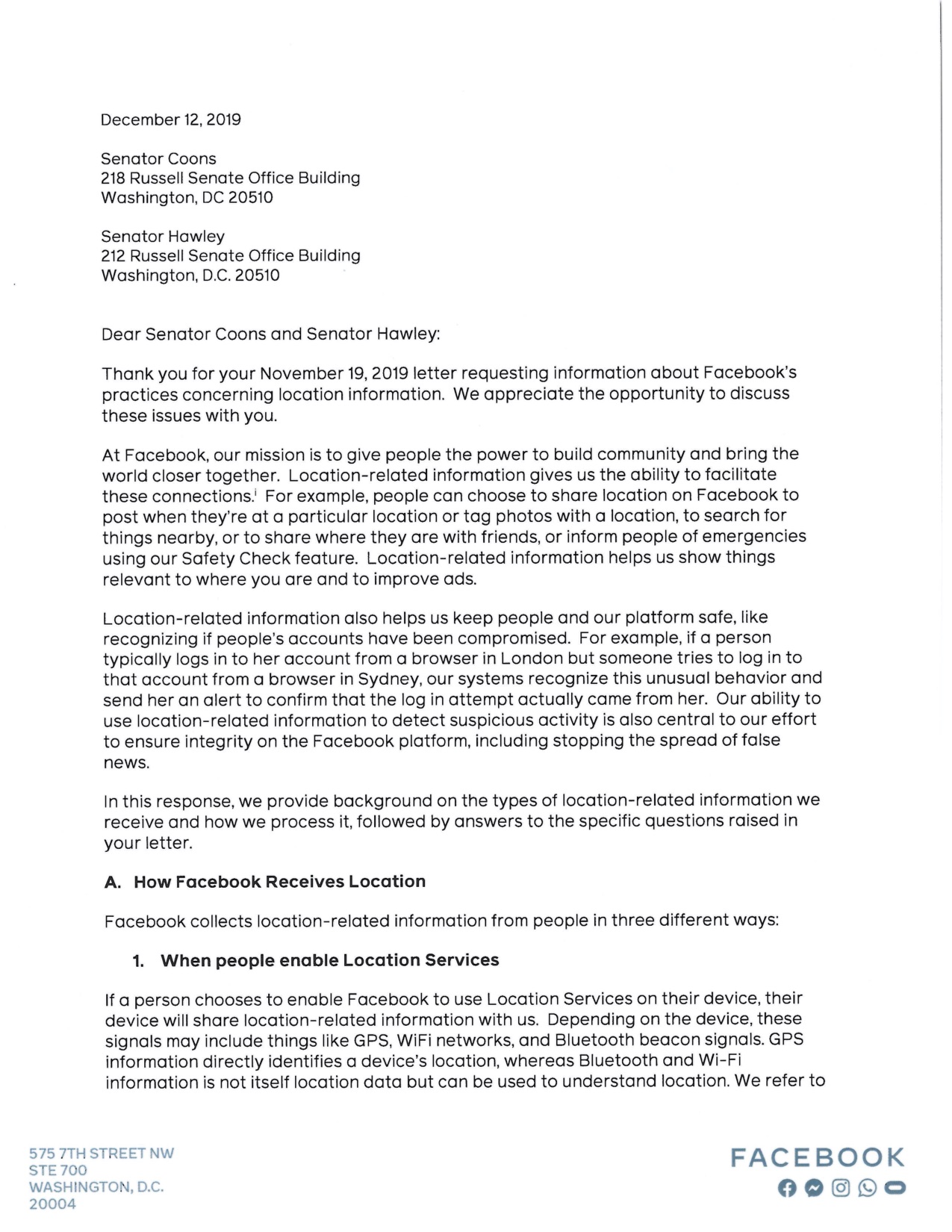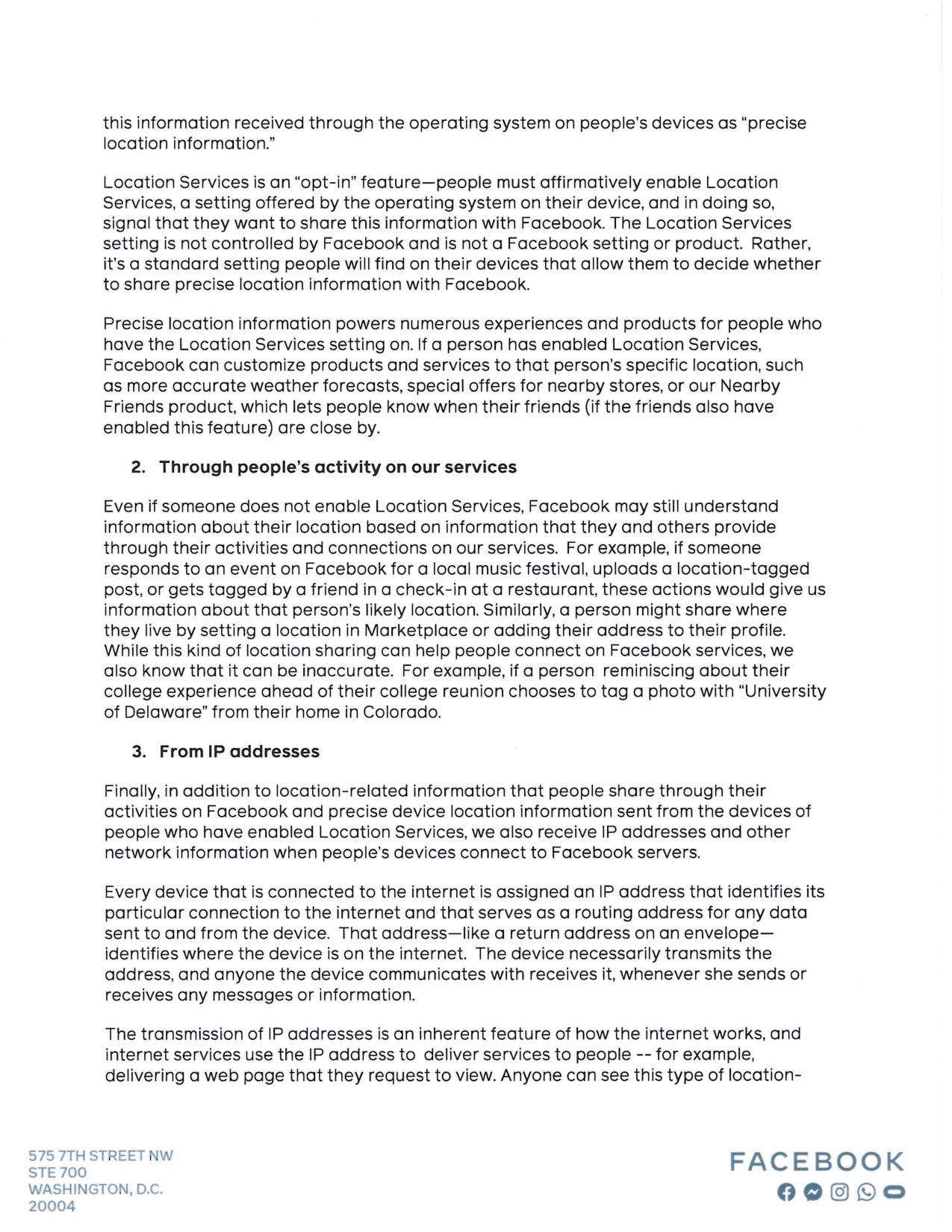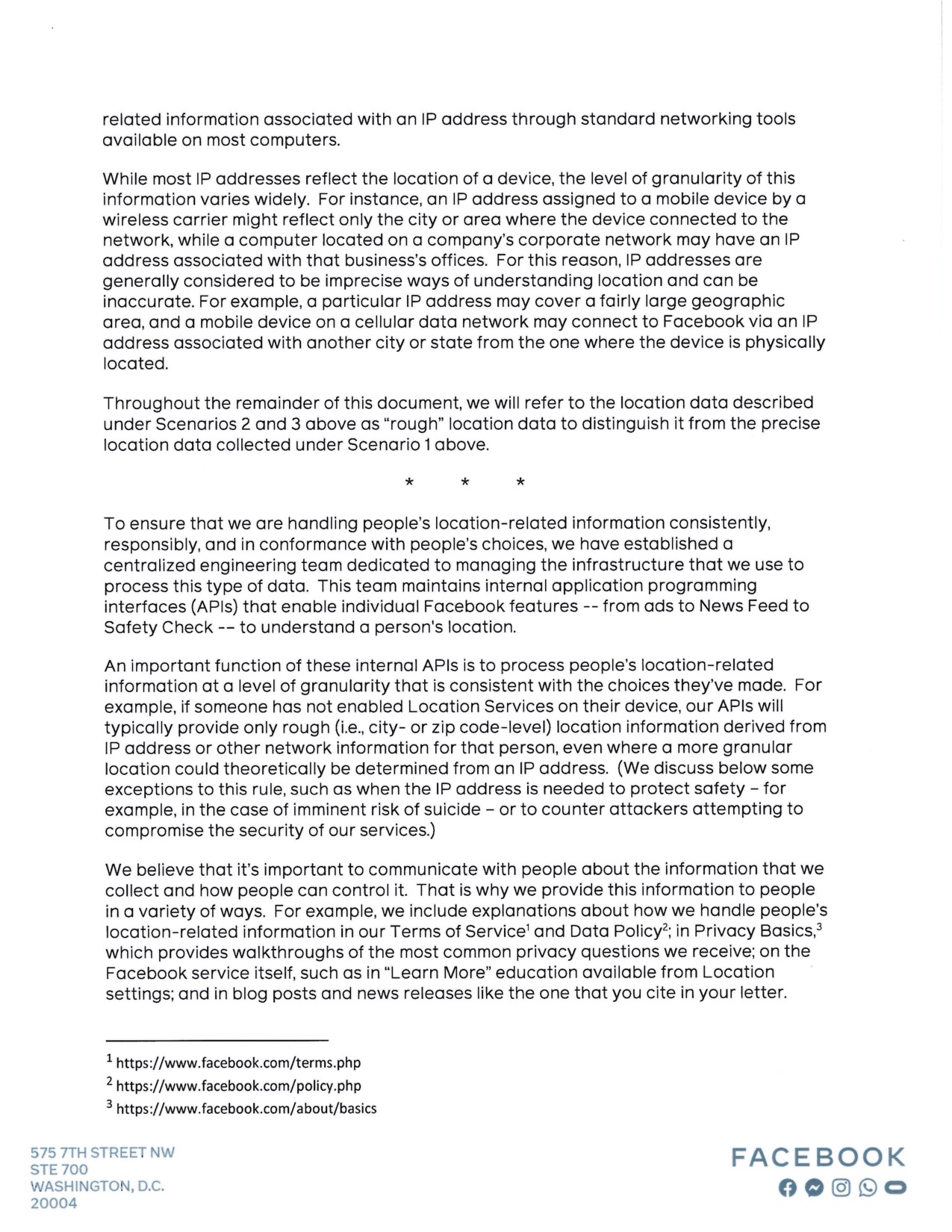Facebook reveals it can track users location even if they turn off location services
There's no escaping now!

Facebook has admitted to tracking the location of its users even if the said users have opted-out of the tracking service. This revelation comes as Senators in the US posed questions about the social media giant's policies when it comes to location tracking.
In a letter addressed to Senators Christopher A Coons and Josh Hawley, and obtained by The Hill, Facebook's Deputy Chief Privacy Officer Rob Sherman details how the company is able to track a user's location even when the user has turned off the tracking services from their account.
anyone want a granular accounting of how Facebook knows your location no? well here you go anyways and there's 5 more pages where that came from pic.twitter.com/tzaSQ2mU6HDecember 17, 2019
Facebook says that it tracks a user's whereabouts to serve advertisements in the News Feeds, customize products and services like accurate weather forecasts, offers from Marketplace and to let people learn about the presence of their friends close by via the Nearby Friends feature.
The company details three ways in which it receives location information of users-- when a user enables location services voluntarily, through checking-in and tagging posts and pictures on Facebook and finally, from IP addresses. The latter two methods of obtaining location data are in fact said to be a "rough" estimate, unlike the accurate information Facebook gets when a user opts-in for location tracking.
Facebook says that "Even if someone does not enable Location Services, Facebook may still understand information about their location based on information that they and others provide through their activities and connections on our services."
It has a dedicated team of engineers who manage and process location data through internal Application Programming Interfaces (APIs) that lets the company understand a user's location.
"An important function of these internal APIs is to process people's location-related information at a level of granularity that is consistent with the choices they've made," the company added.
Get daily insight, inspiration and deals in your inbox
Sign up for breaking news, reviews, opinion, top tech deals, and more.
Facebook claims that they typically only get a rough location information of users who have opted-out of the Location Tracking service and is limited to city/zip codes and location derived from IP addresses. However, its still a user's location information which they've voluntarily turned off, to which the company has access to because they have to display ads in News Feeds.



.@Facebook admits it. Turn off “location services” and they’ll STILL track your location to make money (by sending you ads). There is no opting out. No control over your personal information. That’s Big Tech. And that’s why Congress needs to take action https://t.co/R1LuLcP1LPDecember 17, 2019
Naturally, Facebook has been criticized for its response to the Senators as it continues to milk money out of a user's personal information in order to offer them targeted services. Apart from opting-out of the Location Tracking service, there's currently no way to stop Facebook from getting the tiniest information off of a user's location.
Users of Facebook need to be more aware of how Facebook is using and controlling their personal information to better protect their data. Unless that happens, there's no solution to this issue as most people are innocently willing to trade their personal information.
- Siddharth Chauhan is the Consumer Technology Reporter at Digit India. He used to work as an Assistant Editor at TechRadar India
